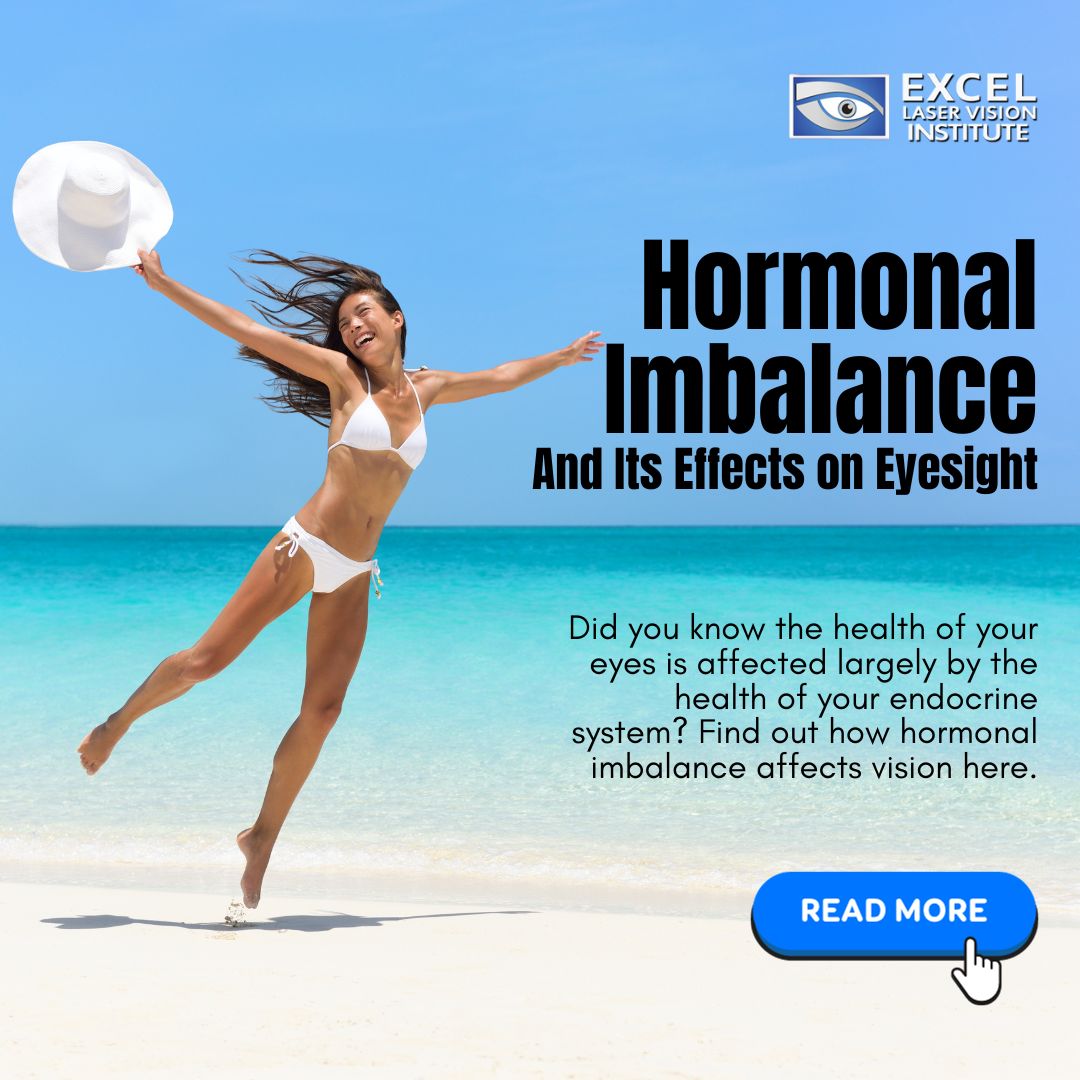
Hormonal imbalance can have various effects on the body, and one area where it can manifest is in eyesight. Hormones play a critical role in managing the health and function of various bodily systems, including the eyes. Fluctuations or imbalances in hormonal levels can lead to changes in vision and eye health. Here’s how hormonal imbalance can affect eyesight and some potential ways to address and mitigate these effects:
Dry Eyes
Hormonal fluctuations, especially during menopause in women, can contribute to dry eyes. Changes in estrogen levels can impact the production of tears, leading to dryness, irritation, and a gritty sensation. Using artificial tears or lubricating eye drops can assist with alleviating dry eyes. Additionally, staying well-hydrated and maintaining a diet rich in omega-3 fatty acids may provide relief.
Blurred Vision
Hormonal imbalances, particularly those related to thyroid dysfunction, can result in blurred vision. An underactive or overactive thyroid can affect the eye muscles and the functioning of the optic nerve. Proper management of thyroid disorders through medication and regular assessments by a healthcare professional can help stabilize hormonal levels and improve blurred vision.
Changes in Prescription
Hormonal fluctuations, such as those happening during pregnancy, can lead to changes in prescription and refractive errors. Pregnant women may experience shifts in fluid balance and corneal thickness, affecting the shape of the eye and vision. Expectant mothers need regular eye check-ups and update their eyeglasses or contact lens prescriptions as needed.
Glaucoma Risk
Studies suggest that hormonal changes may influence the risk of developing glaucoma. Fluctuations in estrogen levels, particularly in postmenopausal women, may contribute to a boosted risk of glaucoma. While the exact relationship is still being researched, regular eye exams and early detection are essential in managing and preventing glaucoma.
Retinal Changes
Hormonal imbalances can impact blood vessel health, potentially affecting the retina. Conditions such as diabetes, which involve hormonal dysregulation, can lead to diabetic retinopathy—a severe eye condition that can cause vision impairment. Proper management of diabetes, including medication, diet, and lifestyle changes, is essential in preventing and slowing the progression of retinal issues.
Pregnancy and Vision Changes
Hormonal changes during pregnancy, such as increased blood volume and fluid retention, can lead to changes in vision. While these changes are often temporary, pregnant individuals may experience mild blurriness or difficulty focusing. Regular eye check-ups and adjustments to eyeglass prescriptions can help manage these changes.
Menstrual Cycle and Contact Lens Discomfort
Hormonal fluctuations during the menstrual cycle can affect the eyes’ surface, leading to discomfort for contact lens wearers. Some individuals may experience dryness, irritation, or a decreased tolerance for wearing contact lenses during certain phases of the menstrual cycle. Using lubricating eye drops and considering alternative vision correction methods such as LASIK in Los Angeles during these times can provide relief.
Addressing Hormonal Imbalance for Eye Health
- Maintain a Healthy Lifestyle. Adopting a balanced diet, staying physically active, and managing stress can improve hormonal balance.
- Stay Hydrated. Proper hydration is essential for tear production and maintaining ocular health.
- Regular Eye Exams. Routine eye check-ups can help detect vision changes early, allowing for prompt intervention.
- Hormone Replacement Therapy (HRT). In cases where hormonal imbalances are significant, hormone replacement therapy, under the guidance of a healthcare professional, may be considered.
Conclusion
In conclusion, hormonal imbalance can impact various aspects of eye health, from dry eyes to changes in prescription. Addressing hormonal imbalances through lifestyle modifications, medical interventions, and attentive eye care can help alleviate symptoms and maintain optimal vision. Individuals experiencing persistent vision changes or discomfort should consult with healthcare professionals, including eye care specialists, to determine the most appropriate course of action for their specific situation.
See related blog here: https://www.exceleye.com/2021/03/26/how-hormones-affect-vision-and-lasik/




